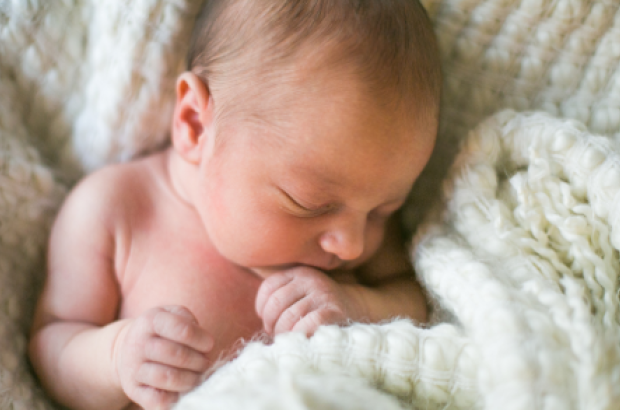- Daily & Weekly newsletters
- Buy & download The Bulletin
- Comment on our articles
Brussels hospitals must offer 'natural' birthing experience
From September, hospitals in Brussels that have a maternity unit will have to include a "birth centre" whose aim is to make the birth experience as natural as possible.
The idea is to simulate a home environment for mothers in labour. If a hospital does not have a dedicated maternity unit, access to delivery rooms will have to be granted to independent midwives.
There is currently only one birthing centre in Brussels: Le Cocon, located within the Erasmus hospital in Anderlecht, which will serve as a model for other hospitals to follow.
There, all the medical equipment is out of view and a double bed, wall decorations, subdued lighting and a bathtub are intended to make mothers feel more comfortable. The centre also has a shared kitchen accessible to patients and their partners.
“It looks like a traditional room because all the medical equipment is hidden away to make it look like home, with no objects that could cause fear or stress,” said Hannah Dukat, a midwife at Le Cocon. “There's no clock either, so we're leaving the usual time behind.”
Duket added that while the rooms are "demedicalised" in outward appearance, they "have all the equipment needed to support a physiological birth and to act in an emergency".
From antenatal consultations to postnatal care, a team of 13 midwives is at the helm of such centres, without the intervention of gynaecologists.
“We're in the hospital, so they can be contacted if there's a problem, but if everything goes well, there won't be a gynaecologist, including during the birth,” said Laure Depuydt, another midwife at the birth centre.
Dukat said that the close access to care is reassuring for many parents: “We're in a kind of in-between situation: between giving birth at home and having it done by a doctor.”
Only low-risk births are permissible at the facilities.
The latest annual report on midwife-led births in Belgium shows that of the 1,400 women who went into labour with a midwife, only 19% had to be transferred to the care of a hospital or gynaecologist.
That means that eight out of 10 women gave birth with their midwife without an epidural or other medical intervention.
“When I read the figures from our Belgian study, which is in line with what is being done internationally, I still get the impression that women are well made, overall, and that we should rather be asking ourselves whether it is not the place where women give birth that interferes with complex physiological processes,” said Aline Schoentjes, a midwife
“We can create a setting where low-risk women can deploy all their power and skills, and avoid all these interventions, whether it's in birthing centres and shelters, or in their own homes.
"Some women will no doubt prefer a more medicalised birth, in hospital with their gynaecologist, and that's fine, but this new obligation for hospitals will give each woman the opportunity to make a real choice and go where she feels most comfortable."
The measure is also expected to cost the social security system less than the traditional medical model, with the money freed up to be spent on more vulnerable women or those with risk factors such as diabetes or obesity.
Midwives should also benefit, as many self-employed midwives give up the profession because of a lack of financial recognition and physical and mental exhaustion.
If registered, they receive the rates set by the state - generally €450 gross for a delivery - but if they choose to opt out of the agreement in order to be able to charge extra, then the patients are less well reimbursed, unless they have insurance.
Unlike doctors, independent midwives are not paid by the public authorities for being on call, but are available 24 hours a day, seven days a week, three weeks before and two weeks after the due date.
“It's 99% women's work,” Schoentjes said. “They're women, they're mothers, they're frontline carers. They look after women and babies, and that doesn't pay.
"And I was wondering whether it isn't the independent, frontline midwives who are the future precarious workers, the ones who work a lot in a society that will be increasingly two-speed."
















